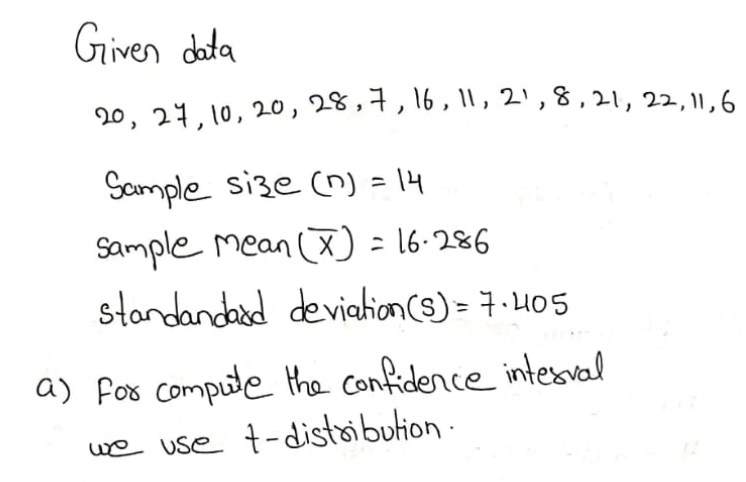You are interested in finding a 90% confidence interval for the average commute that non-residential students have to their college. The data below show the number of commute miles for 14 randomly selected non-residential college students. Round answers to 3 decimal places where possible. 20 27 10 20 28 7 16 11 21 8 21 22 11 6 a. To compute the confidence interval use a ? z t distribution. b. With 90% confidence the population mean commute for non-residential college students is between and miles. c. If many groups of 14 randomly selected non-residential college students are surveyed, then a different confidence interval would be produced from each group. About percent of these confidence intervals will contain the true population mean number of commute miles and about percent will not contain the true population mean number of commute miles
Contingency Table
A contingency table can be defined as the visual representation of the relationship between two or more categorical variables that can be evaluated and registered. It is a categorical version of the scatterplot, which is used to investigate the linear relationship between two variables. A contingency table is indeed a type of frequency distribution table that displays two variables at the same time.
Binomial Distribution
Binomial is an algebraic expression of the sum or the difference of two terms. Before knowing about binomial distribution, we must know about the binomial theorem.
? t z
You are interested in finding a 90% confidence interval for the average commute that non-residential students have to their college. The data below show the number of commute miles for 14 randomly selected non-residential college students. Round answers to 3 decimal places where possible.
| 20 | 27 | 10 | 20 | 28 | 7 | 16 | 11 | 21 | 8 | 21 | 22 | 11 | 6 |
a. To compute the confidence interval use a ? z t distribution.
b. With 90% confidence the population mean commute for non-residential college students is between and miles.
c. If many groups of 14 randomly selected non-residential college students are surveyed, then a different confidence interval would be produced from each group. About percent of these confidence intervals will contain the true population mean number of commute miles and about percent will not contain the true population mean number of commute miles

Trending now
This is a popular solution!
Step by step
Solved in 3 steps with 5 images









